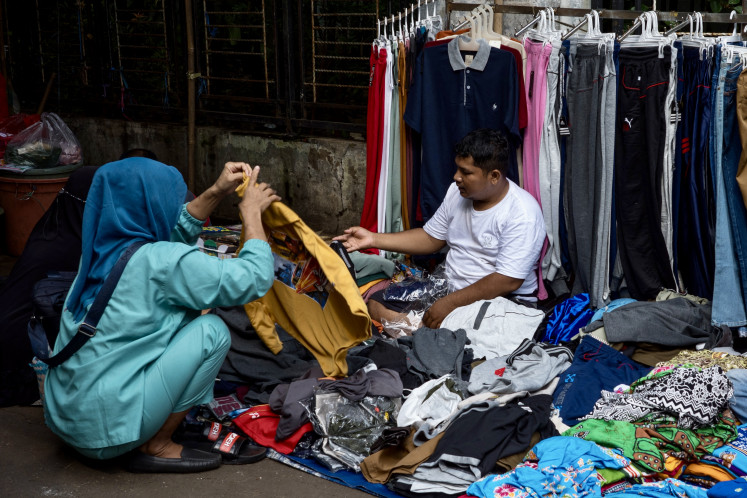Popular Reads
Top Results
Can't find what you're looking for?
View all search resultsPopular Reads
Top Results
Can't find what you're looking for?
View all search resultsEditorial: Merciful drug law
It was a happy ending for an Australian minor convicted of drug possession as he reunited with his family on Sunday after serving two months incarceration in a Bali detention center
Change text size
Gift Premium Articles
to Anyone
I
t was a happy ending for an Australian minor convicted of drug possession as he reunited with his family on Sunday after serving two months incarceration in a Bali detention center.
The release put an end to a protracted controversy surrounding the arrest of the 14-year-old boy early in October for buying the drugs while vacationing with his family and the entire legal process he had to endure. The debate had focused on the fact that he was underage and should not be locked up in a foreign jail, at least according to the general sentiment within the Australian community down under.
Only on Nov. 25 did the Denpasar District Court sentence the teenager to two months minus time served. The judges handed down the light sentence as the boy admitted to having bought 0.13 ounces (3.6 grams) of marijuana and repeatedly expressed remorse. He also promised to enter a drug rehabilitation program upon arriving home in Morrisset Park, north of Sydney.
That the Indonesian fight against drugs displayed a semblance of leniency in the case of the Australian teenager was perhaps because of its sensitivity. Many legal cases involving Australian nationals here have sparked outrage in the neighboring country and vice versa.
Normally, courts in the country are tough in dealing with juvenile delinquency despite persistent calls from child protection groups for out-of-court settlements in the event of criminal acts involving minors. Regardless of their age, a number of children have faced trials for allegedly committing crimes, although in some cases the judges decided to return them to their parents’ custody.
When it comes to the war on drugs, the Indonesian narcotics law is seen as merciless, as anyone convicted of possessing drugs faces a punishment of 12 years in prison. More than 50 foreigners, including Australians, are on death row for drug-related crimes. Several convicted foreign drug smugglers have been executed.
Whether or not diplomatic measures were at play in the lenient sentence for the convicted Australian teenager and his immediate release, the Indonesian law enforcers were trying to send a message that anyone, either Indonesian national or foreigner, is equal before the law. They can neither escape from nor bend the law, but deserve a fair trial.
The judicial process against the Australian minor was simply a reminder for foreigners traveling to Indonesia, as well as their governments, to respect the laws in place here.
In the same vein, Indonesia, while exhausting all possible legal measures, has no other choice but to respect the sanctity of law enforced in other countries, even if it may cost the life of Indonesian nationals overseas, as in the cases of migrant workers on death row in the Middle East and neighboring Malaysia.
A blessing in disguise from the controversial trial of the Australian boy is certainly the opportunities for both Australia and Indonesia to boost cooperation in combating transnational crimes such as drugs and people smuggling and to step up efforts in their negotiation over prisoner transfer deals.










